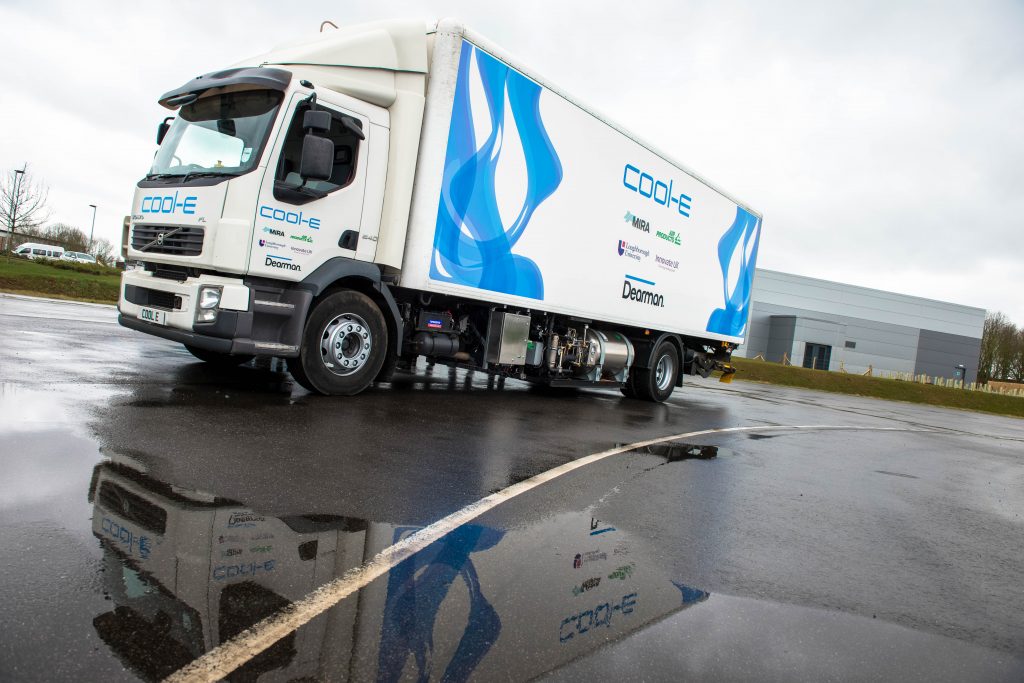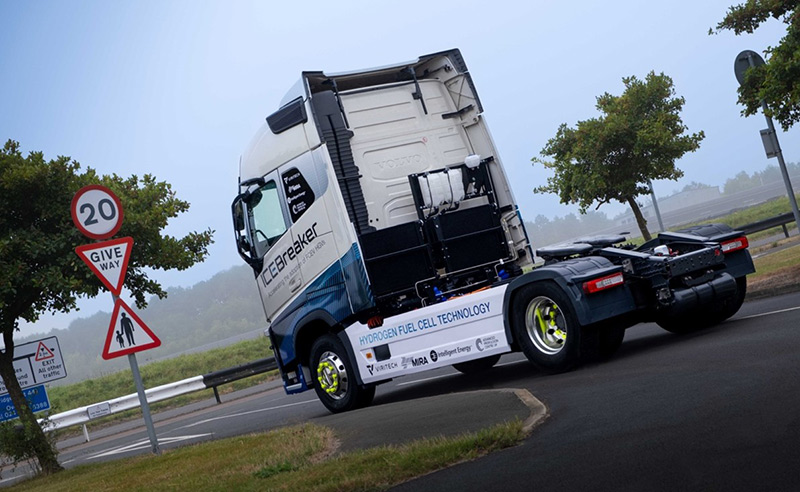Ground-Breaking Zero-Emission Cold and Power Technology Begins Trials
A revolutionary zero-emission refrigeration system for transportation applications, developed in the UK, which delivers both power and cooling from liquid nitrogen, has begun on-vehicle testing. The system, which features a liquid nitrogen powered Dearman engine, has already produced promising results and could ultimately deliver a paradigm shift within the global transport refrigeration industry.

The Dearman system is being tested as part of an Innovate UK backed project – Cool-E – that is managed by a consortium of MIRA, Dearman, Air Products and Loughborough University.
This novel liquid nitrogen powered technology has been developed as a zero-emission alternative to existing highly polluting, fossil-fuelled, transport refrigeration units, which can emit up to six times as much NOx and 29 times as many particulates as a Euro 6 diesel engine.
A robust programme of on-vehicle testing has now begun and will continue through the summer, but initial test results are promising, with the system already able to cool the chilled trailer more quickly than a conventional diesel refrigeration unit. Most importantly, initial testing has served to validate the principles behind the system, demonstrating that it can successfully provide a zero-emission alternative to conventional cooling equipment.
Discussing the project, Professor Toby Peters, Founder and Senior Group Managing Director of Dearman said:
“This is a key moment in the development of cutting edge, zero-emission clean cold and power technology. With the global demand for cooling, and transport refrigeration in particular, growing extremely rapidly, we are faced with an environmental challenge but also an economic opportunity. The fact that our system is running, and that it has already delivered very promising results, highlights the role that Dearman technology can play in meeting the inescapable need for sustainable cooling.
“Moreover, this milestone demonstrates rapid progress. Getting such an innovative technology into operation in such a short time is a real achievement and highlights the strength of our engineering, the applicability of our innovation, the capability of our partners, and most importantly the dedication of our people.”
Chris Reeves, Commercial Manager of Future Transport Technologies at MIRA said:
“We are proud to be leading the Cool-E consortium and the outstanding effort made by everyone to reach this key milestone in such a short space of time. We are now looking forward to evaluating and refining the system and building on the outstanding results to date.”
Jon Trembley at Air Products said:
“This project is already showing how R&D can help solve environmental challenges in a commercially viable way. By linking up with UK government and leveraging the expertise of companies such as ourselves, advancements in combined cold and power technology can not only be realised, but can also play an important role in the country’s progression towards a low carbon future.”
Dr Andy Williams at Loughborough University said:
“Cold energy stores such as liquid nitrogen or liquid air have over ten times the cooling capacity than the heat they can absorb. It is exciting to see the Dearman Engine enabling access to this extra cooling power within the Cool-E project, paving the way for future cold energy technologies.”
There is predicted to be a significant increase in demand for transport refrigeration in the years to come. Globally, the number of transport refrigeration units on the road is expected to increase rapidly, to at least 9.6 million.
This zero-emission system has the potential to displace a significant amount of diesel, which would otherwise be used to meet that growing need. A transport refrigeration unit accounts for up to 20% of the vehicle’s total diesel usage, so moving to a zero-emission technology will have major environmental benefits – reducing air pollution and delivering well-to-wheel CO2 savings – while allowing operators to save significant operational costs per vehicle each year, compared to a diesel powered transport refrigeration unit.
Building on the Cool-E project, the first Dearman engine powered transport refrigeration unit is expected to go into commercial field trial later this year, with larger scale European and international trails to begin in 2016.







